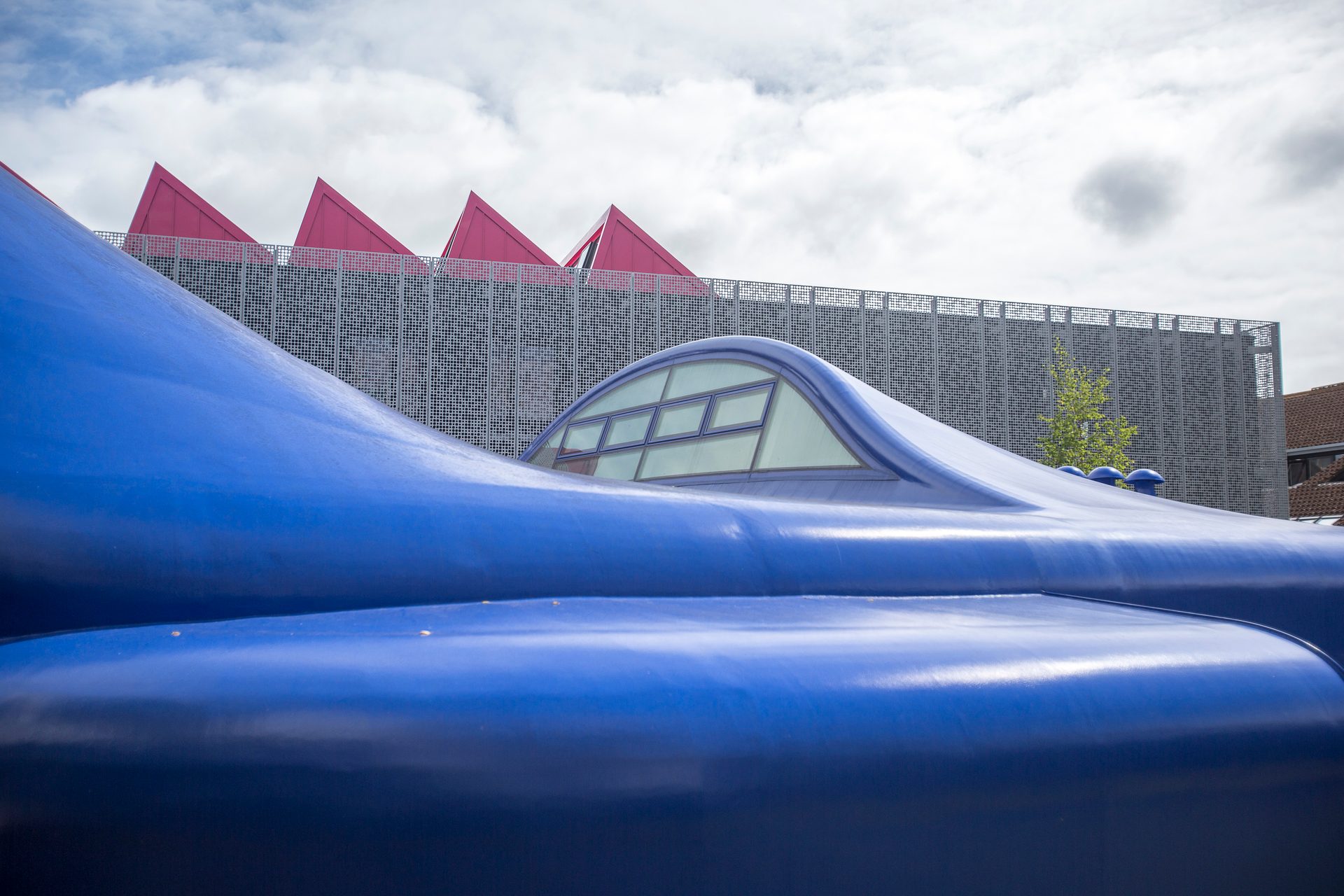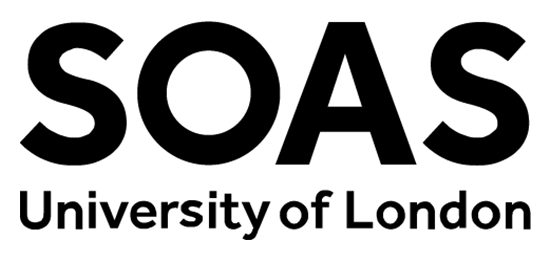Since being founded in 1916, SOAS University of London has stood through time as the hallmark of non-conformity. In a world where the Eurocentric worldview is dominant, SOAS shatters it by focusing on research and academic excellence based in the Middle East, Asia, and Africa. It's the reason the institution is unique in higher education in the UK and Europe. Through languages and culture, law, politics, economics, development studies, finance and management — SOAS fosters a sense of global connectedness that allows students to grow into the leaders of the future.
Non-western perspectives are amplified in each and every realm of learning at SOAS, including the College of Development, Economics, and Finance. Here, no one region reigns more important than the other. Led by the UK's second most international faculty, according to the QS Europe Rankings 2025, students are enriched by the diversity that streams through every text and every thought.
– Elisa Van Waeyenberge, Dean of the College of Development, Economics and Finance
“We act as an important amplifier of context-specific and historically grounded analysis that engages with problems at multiple scales, offering insights with significant policy relevance in a fast-changing world."
133+
countries represented
200+
postgraduate programmes
28th
in Europe for student diversity
In the College of Development, Economics and Finance, students gain the skills and knowledge necessary to tackle the global issues plaguing these industries in SOAS regions. Through a curriculum that's embedded in real-world scenarios and applications, and the brilliant minds of around 200 researchers coming together — you'll have the resources to bring solutions to global problems across labour and social movements, inequalities and gender dynamics, climate change, and more. You'll dive headfirst into an environment that prioritises interdisciplinary and pluralist learning, so it's a guarantee that everyone's voices are heard.
High-impact degrees to change the world
In the College of Development, Economics and Finance, students gain the skills and knowledge necessary to tackle the global issues plaguing these industries in SOAS regions. Through a curriculum that's embedded in real-world scenarios and applications, and the brilliant minds of around 200 researchers coming together — you'll have the resources to bring solutions to global problems across labour and social movements, inequalities and gender dynamics, climate change, and more. You'll dive headfirst into an environment that prioritises interdisciplinary and pluralist learning, so it's a guarantee that everyone's voices are heard.
High-impact degrees to change the world
High-impact degrees to change the world
In the College of Development, Economics and Finance, students gain the skills and knowledge necessary to tackle the global issues plaguing these industries in SOAS regions.
Through a curriculum that's embedded in real-world scenarios and applications, and the brilliant minds of around 200 researchers coming together — you'll have the resources to bring solutions to global problems across labour and social movements, inequalities and gender dynamics, climate change, and more. You'll dive headfirst into an environment that prioritises interdisciplinary and pluralist learning, so it's a guarantee that everyone's voices are heard.
If you're looking to explore development across the globe that spans a wide range of thematic realms like climate change, sustainability, humanitarian action, and more, then there's really no better place to be than the Department of Development Studies, ranked #3 in the world (QS World University Rankings by Subject 2024).
The BA, MSc, and PhD programmes offered are diverse in subject coverage, which means that you'll learn how to independently and critically analyse development across different contexts around the world. Research in this field of study covers five clusters: Environment, Conflict, Peace, and Development, Migration and Development, Agrarian Change and Development, and Global Labour, Activism, and Social Justice.

Department of Development Studies
At the School of Finance and Management, students become effective team members, communicators, data analysts, and problem-solvers. They grow into leadership roles that pin them as business pioneers in a changing world, and their journey to that point begins with an education that's research-led and filled with stimulating challenges.
To their benefit — the School of Finance and Management is a leading research centre in finance and management, especially known for its work in Africa, Asia, and the Middle East. It creates a proactive environment where students leverage the skills they garner to become game-changing policymakers who create healthier working environments across companies and organisations.
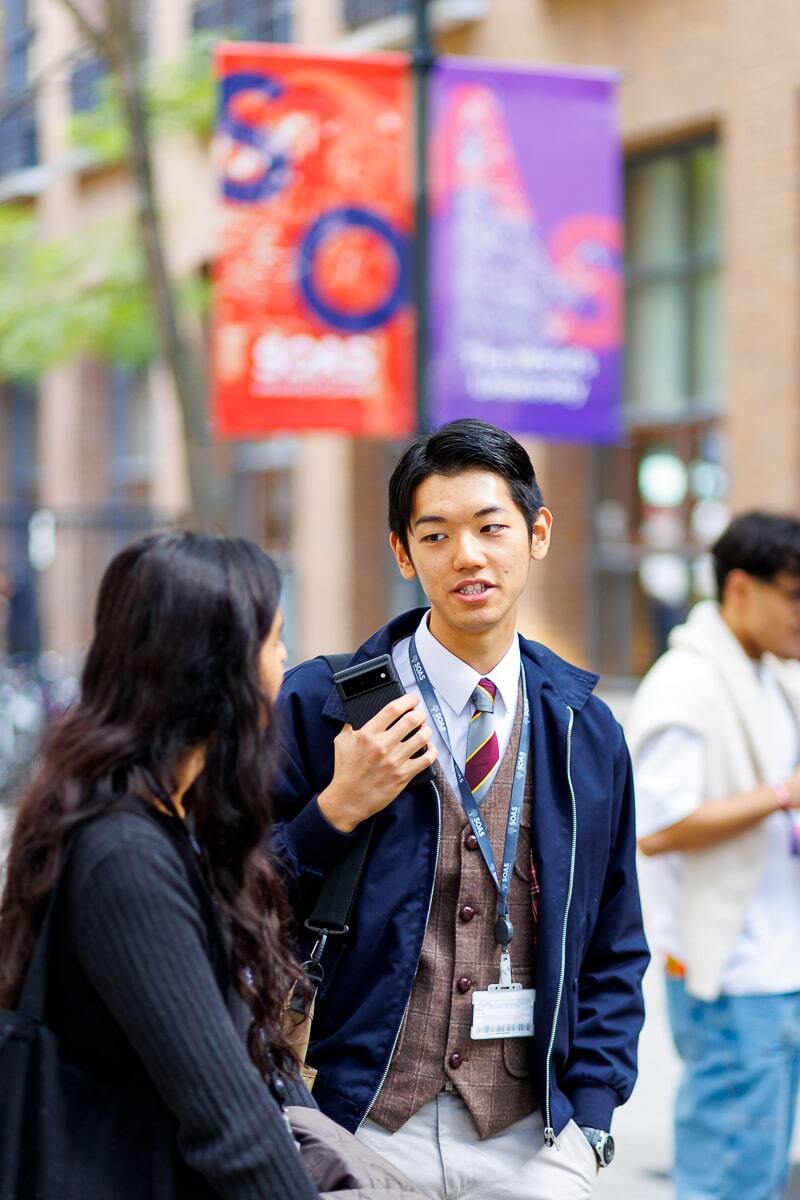
School of Finance and Management
Economics drives the function of a society, from an individual scale to government policies. The economists of the future hold a significant impact on how they choose to shape the world, which is why the Department of Economics at SOAS, ranked top 30 in the UK (QS World University Rankings by Subject 2024), offers them the best of the best in research, academics, and scholarship.
Here at the Department of Economics, learning is embedded in socio-economic equalities experienced in the UK, Europe, and especially the Global South. The cost of living crisis, gender, race, climate justice, and more — undergraduate and postgraduate students learn to combat such issues through hands-on learning, and applying theoretical concepts to real-world scenarios.

Department of Economics
A career-driven experience
At SOAS Careers, services in professional development are provided to students to help them route their career trajectories to success. These services are developed through data-driven research, as well as the expertise of the SOAS staff and industry people. You'll have access to alumni workshops and employers skills sessions, resources to guide you through the job-search process and postgraduate studies, platforms to seek jobs, internships, and volunteering opportunities, and so much more.

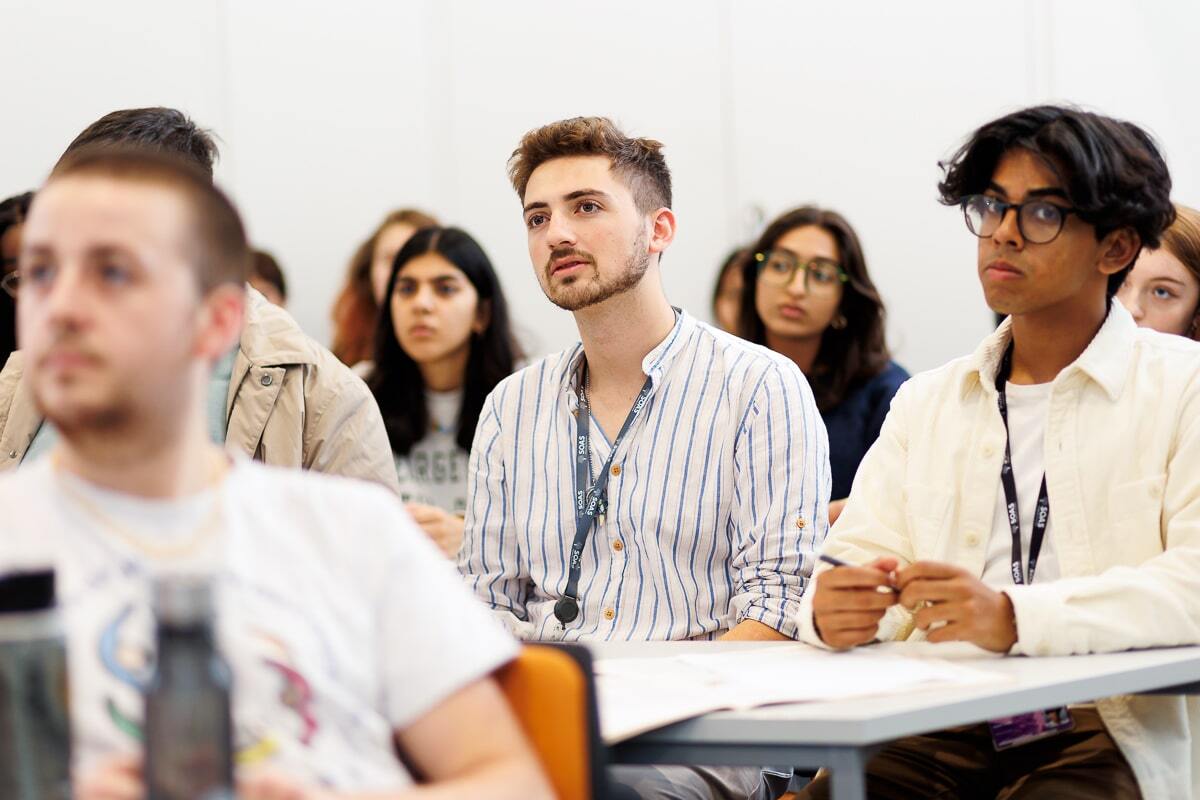
There's a reason why SOAS University of London is positioned as a one-of-a-kind institution: students graduate empowered, informed, and equipped with a unique skill and knowledge set that you wouldn't find anywhere else in Europe. It's the reason its 75,000 alumni now thrive in careers across the world, making impactful decisions in corporate environments, non-governmental organisations, charities, and government positions.
Hear from students



“I was looking for a master’s programme to catapult my policy career to the next level. Armed with a master’s in economics from SOAS, I will now have the academic credentials to apply for more specialist roles in central banking and international economic organisations like multilateral development banks, further buoyed by SOAS’s strong international reputation. I consider this programme as opening more doors for a high-impact career.”
Alysha Bagasra,
MSc Economics (specialisation in Economics of Environment)

“Professionally, SOAS gave me a huge foundation. I first developed an interest in Asia when I went to Japan for a year at 17. People often ask, 'SOAS prepared you for a career in finance? Really?' But it absolutely did. I’ve worked in eight or nine countries with HSBC, and my ability to adapt, understand people, and hit the ground running in different environments came from SOAS. If you want an international career, SOAS is outstanding preparation.”
Robert Oates,
BA Hons in Asian Studies
Robert Oates,
BA Hons in Asian Studies
“I love the SOAS library; since my interest was in Chinese investment in Africa, I found many more resources there than at any other universities, such as LSE or UCL. The academic staff at SOAS are very approachable and supportive—not hierarchical as many are in China. I could ask questions anytime, whether in class, at the cafe, or even in the school pub, without needing to book an appointment.”
Weiwei Chen,
MSc Development Studies
“It is the way students are exposed to different perspectives, apart from the mainstream ideas. I noticed that whenever I participated in events within the University of London network or organized by think tanks such as ODI or Chatham House — people would often tell us ‘I can see you are from SOAS’ based on the questions my colleagues and I would ask.”
Fernandes Wanda,
MSc Development Studies


“It is the way students are exposed to different perspectives, apart from the mainstream ideas. I noticed that whenever I participated in events within the University of London network or organized by think tanks such as ODI or Chatham House — people would often tell us ‘I can see you are from SOAS’ based on the questions my colleagues and I would ask.”
Fernandes Wanda,
MSc Development Studies

“I love the SOAS library; since my interest was in Chinese investment in Africa, I found many more resources there than at any other universities, such as LSE or UCL. The academic staff at SOAS are very approachable and supportive—not hierarchical as many are in China. I could ask questions anytime, whether in class, at the cafe, or even in the school pub, without needing to book an appointment.”
Weiwei Chen,
MSc Development Studies

“Professionally, SOAS gave me a huge foundation. I first developed an interest in Asia when I went to Japan for a year at 17. People often ask, 'SOAS prepared you for a career in finance? Really?' But it absolutely did. I’ve worked in eight or nine countries with HSBC, and my ability to adapt, understand people, and hit the ground running in different environments came from SOAS. If you want an international career, SOAS is outstanding preparation.”
Robert Oates,
BA Hons in Asian Studies
Robert Oates,
BA Hons in Asian Studies

“I was looking for a master’s programme to catapult my policy career to the next level. Armed with a master’s in economics from SOAS, I will now have the academic credentials to apply for more specialist roles in central banking and international economic organisations like multilateral development banks, further buoyed by SOAS’s strong international reputation. I consider this programme as opening more doors for a high-impact career.”
Alysha Bagasra,
MSc Economics (specialisation in Economics of Environment)
Hear from students
Natasha Natarajan,
MA Creative and Cultural Industries
“At SOAS you are constantly confronted with the diversity of the globe. Professors specialise in regions and practices that you may never have encountered. This really shaped my entire personality – my favourite literature, my favourite music, visual art, and my understanding of world history and politics. It’s also shaped the type of people I befriend and the communities I belong to. SOAS gave me a unique global perspective, which I’ve carried with me throughout my adult life, and really enriched my experience of the world.”

“SOAS’s diverse academic environment and culturally rich curriculum have broadened my perspective immensely. The diverse backgrounds of my classmates and the multidisciplinary approach of my programme have broadened my perspective on global heritage, identity, and representation. Every class discussion introduces new insights into how cultures communicate through objects, stories, and rituals. This experience has deepened my appreciation of cultural diversity and the complexities of representing these narratives in museums.”
Subhadra Ramaswamy,
MA Curating Cultures ‘22

“SOAS provided an invaluable environment to practise and think critically about music across cultures. Its applied approach, with learning and performance opportunities across musical traditions, was empowering and deeply meaningful to engage with peers from around the world. My studies highlighted politics and power imbalances inherent in music-making, engaging critical and decolonial theories to consider tangible ways of encouraging creative agency.”
Claudia Huang,
MA Music
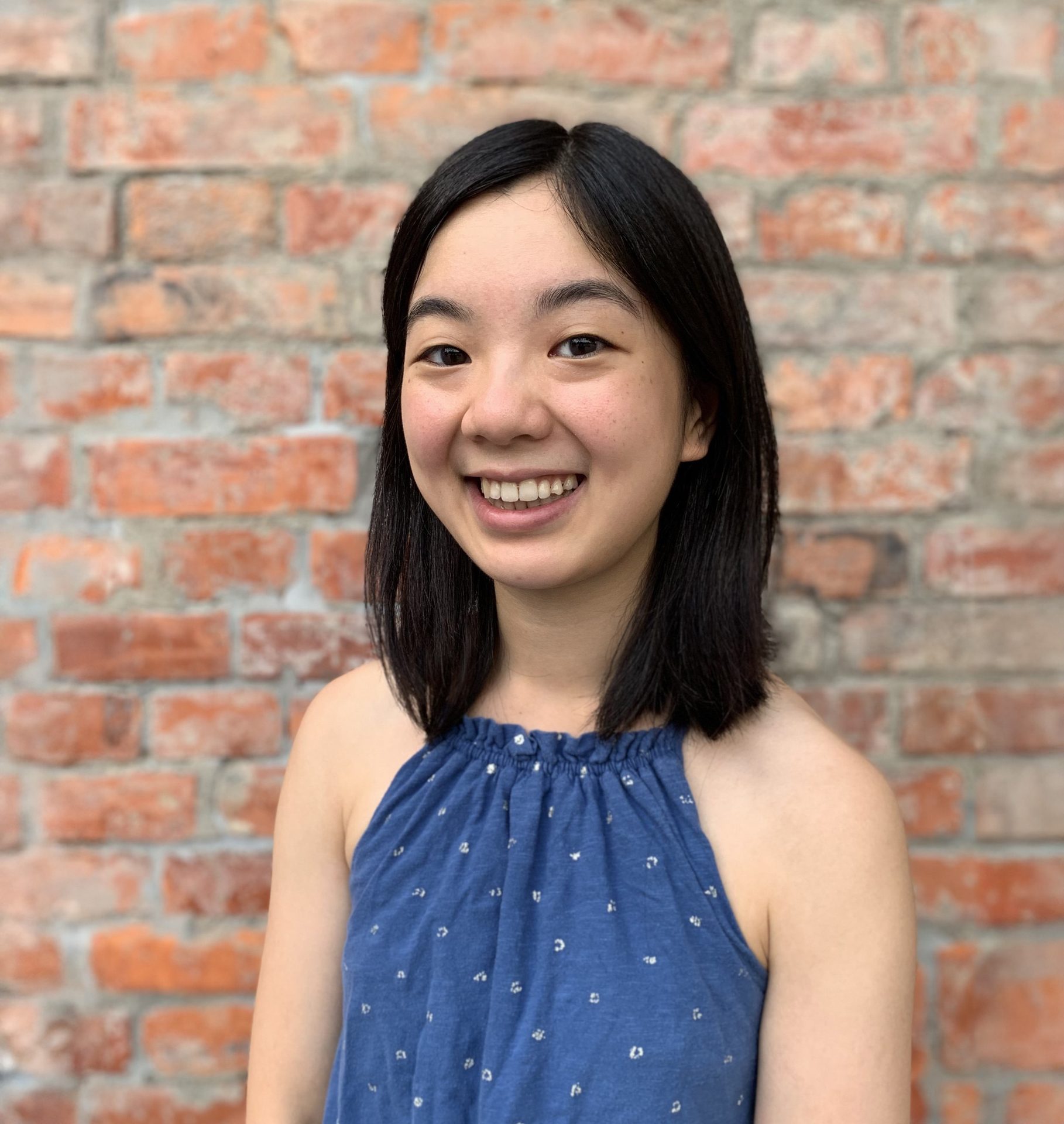
“SOAS provided an invaluable environment to practise and think critically about music across cultures. Its applied approach, with learning and performance opportunities across musical traditions, was empowering and deeply meaningful to engage with peers from around the world. My studies highlighted politics and power imbalances inherent in music-making, engaging critical and decolonial theories to consider tangible ways of encouraging creative agency.”
Claudia Huang,
MA Music




Copyright © 2025 Study International, official representative of SOAS University of London - College of Development Studies, Economics & Finance

